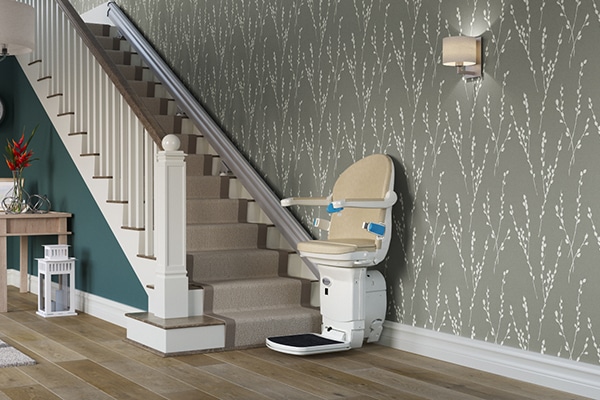Who wouldn’t want to live at home for their entire lives? The word “home” is often used as a euphemism for “place I feel most comfortable”. In some cases, “home” is the word we use to describe our country of origin when we’re on vacation. Of course, in literal terms, “home” is the physical location where we go to sleep and wake up every day. Many seniors fear that they won’t enjoy this luxury due to their elevated requirements.
If you have an elderly loved one in your life who needs regular care, there are ways to help him/her age in place. Let’s discuss how you can help your loved one to do just that.
Select an appropriate home for your elderly loved one.
Just because the older adult in your life wishes to age in place, it doesn’t necessarily mean it must be done at your home. Perhaps, you have a very busy work schedule. Maybe your place of residence is too small. Do you have a family member whose home would be better suited to meet the needs of your aging parent? If a sibling lives in a house that can be equipped with a stair lift, for example, it may be more a suitable location for your elderly loved one to age in place.
“For aging-in-place, it’s good to have very easy access to the things that everyone needs to maintain body and soul: social activities, outdoor air, exercise, good food, and favourite activities,” contends Dr. Leslie Kernisan on BetterHealthWhileAging.net, “Senior living communities usually make it easy for people to interact with neighbours, but a lively mixed-age neighbourhood in a city or the suburbs can also work well.”
Be mindful of the unique needs of your care recipient.
There is no one-size-fits-all solution to caring for a senior while he/she ages in place. Naturally, everyone is different. One of your first and most important tasks is to assess the specific needs of your loved one. Does he/she contend with mobility issues? If so, it’s possible that some home modifications are in order. Wheelchair users, for example, greatly benefit from having wheelchair lifts installed at the front entrances of their homes.
As Companions For Seniors reminds us, “whether you’re an aging adult considering your long-term care plan, or a family caregiver hoping to help an elder age in place, it’s important to carefully consider the senior’s needs, wants, preferences, and abilities.”
Seek other sources of help.
Be okay with the fact that you can’t do everything on your own. While your elderly loved one may live in your home, it doesn’t necessarily mean that you should be his/her only caregiver. Construct a team of trustworthy and caring individuals who are willing to lend helping hands. In some cases, this will mean cutting keys for team members. That way, they will have access to your home in order to assist your aging parent in the event you’re unavailable.
“Many of us have difficulty accepting help no matter what our age or condition, and it can be especially hard for aging adults as well as for family caregivers to accept help,” says Dr. Kernisan, “Furthermore, finding affordable help can be challenging. Fortunately, senior centers and caregiver support centers often offer ideas and referrals.”
Modify your home.
Advantage Home Health Solutions would love to help your elderly loved one to comfortably age in place. To learn all about our solutions, such as our stair lifts and wheelchair lifts, please don’t hesitate to give us a call at 403-460-5438. You may also email us by filling out the form on our Contact page!




